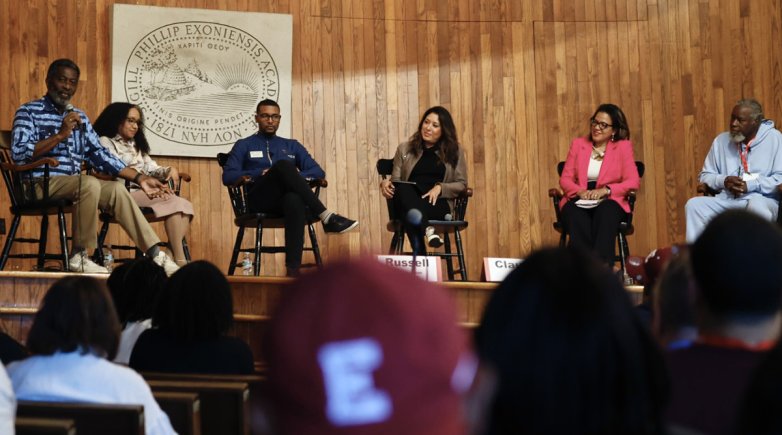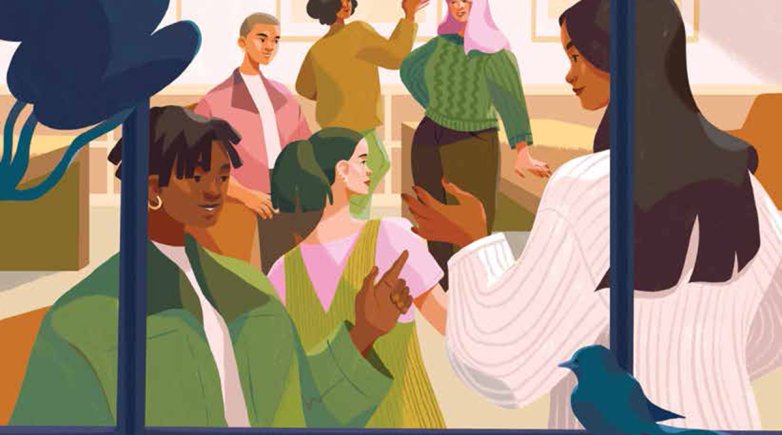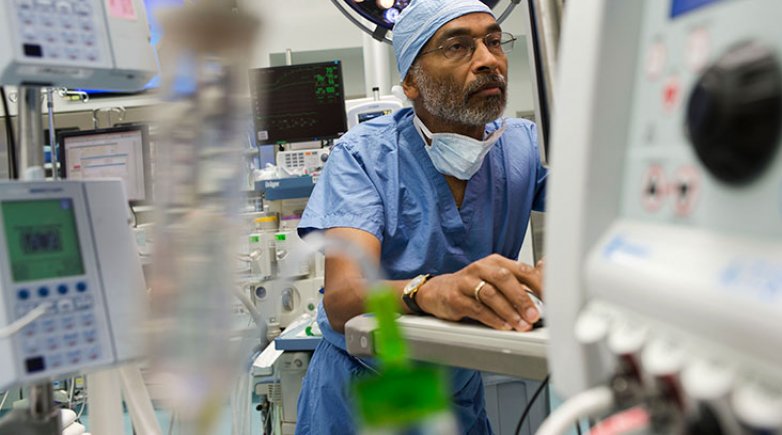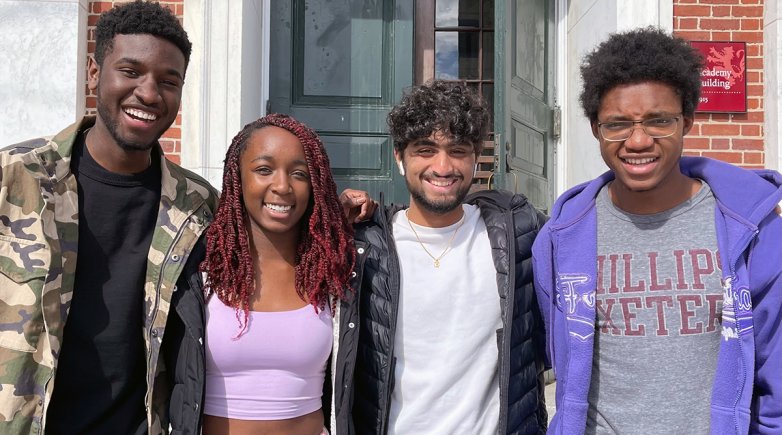Imagining our future
Alumni across generations gather to celebrate the enduring impact of the Afro-Latinx Exonian Society.
More than 200 Exeter alumni, guests, faculty, staff and trustees convened on campus for a weekend in October to celebrate 55 years of the Afro-Latinx Exonian Society, or A.L.E.S. Founded in 1968 as the Afro-Exonian Society, A.L.E.S. has served ever since as a vital place to support and share the culture and history of Exeter’s Black and Latinx students.
The anniversary programming kicked off with a welcome from the event’s hosts, Academy Trustees Wole Coaxum ’88; P’24 and Paulina Jerez ’91; P’21, in the Class of 1945 Library. Principal Bill Rawson ’71; P’08 offered opening remarks, followed by Academy Trustee Eric Logan ’92 and Magee Lawhorn, Exeter’s head of Archives & Special Collections.
“I submit to you that on Monday Exeter will not be the same school it was yesterday,” Rawson said. “You will be responsible for how we are learning, growing and changing as an educational institution this weekend by being together, telling and hearing your stories, celebrating and reflecting on where we have been, what we have become, and imagining our future.”
Saturday’s panel discussion was a program highlight. Moderated by Dean of Students Russell Weatherspoon ’01, ’03, ’08, ’11 (Hon.); P’92, P’95, P’97, P’01, the panel brought together current students and five alumni spanning five decades with professional expertise in the fields of journalism, medicine, law, venture capital and public policy. The conversation centered on how core values such as knowledge, goodness, truth and justice can be channeled to address the enduring and thorny challenges involving race in our society. A consistent theme emerged: the importance of people of color in general, and Exeter alumni in particular, reaching across generations to support each other.
“When we think about knowledge and access and goodness…it's complicated to break through those silos, to break through those attitudes, to break through those beliefs,” said Stephanie Neal-Johnson ’85; P'19, COO of the Massachusetts Department of Labor. “But at the end of the day, having those conversations as we are today [is] really what will make the difference.”
Panelist Veronica Juarez ’00, a Houston-based social enterprise investor, spoke of forming her own venture capital firm to invest in companies headed by Latinx founders. “It's critical for us — being a part of the game, playing the game, getting into this asset class of investing,” Juarez said. “Typically those opportunities have not even been presented to us because they're private… . You would only access this via your friends who tell you in a closed-door meeting. So, this is our closed-door meeting.”
Claudia Cruz ’96, director of internships and experiential learning at the University of Nevada’s Reynolds School of Journalism, said: “Journalism is important, but we're not always conveying all the information or all the truths to all the right people. If we did that, could we balance the scales a bit?”
Dr. Leroy Sims, ’97, head of medical operations for the National Basketball Association, spoke of the need for people of color to seek out — and to become — sponsors, rather than mentors. “A sponsor has to know what your motivations are, what your capabilities are in order to be able to advocate and to be able to say, ‘I'm going to bring you along,’” he said. “It's just not an invitation… . You need to feel like you belong in that room.”
Mark McClain ’74; P’08, a Baptist minister and attorney from East Cleveland, added, “We can put our minds together and we can really find out what truth is, what justice is. All of these things we talk about as ideas or ideals — we can bring them to reality.”
Upper Sophie Goldman ’25 shared her gratitude and impressions of the event, eliciting applause and visible emotion from the panelists and many in the audience. “I've never been in a room where people who looked like me were able to speak these hard truths,” Goldman said. “I want to connect with the alumni in this room because it's important that…we can make sure the truth changes for the next generation and we're able to see our own truth.”
Coaxum offered a touching tribute to Weatherspoon, who is set to retire at the end of this school year after 37 years of service to the Academy. “For many of us, Mr. Weatherspoon played an essential role in our lives as students and continues as we navigate the world as an adult,” Coaxum said.
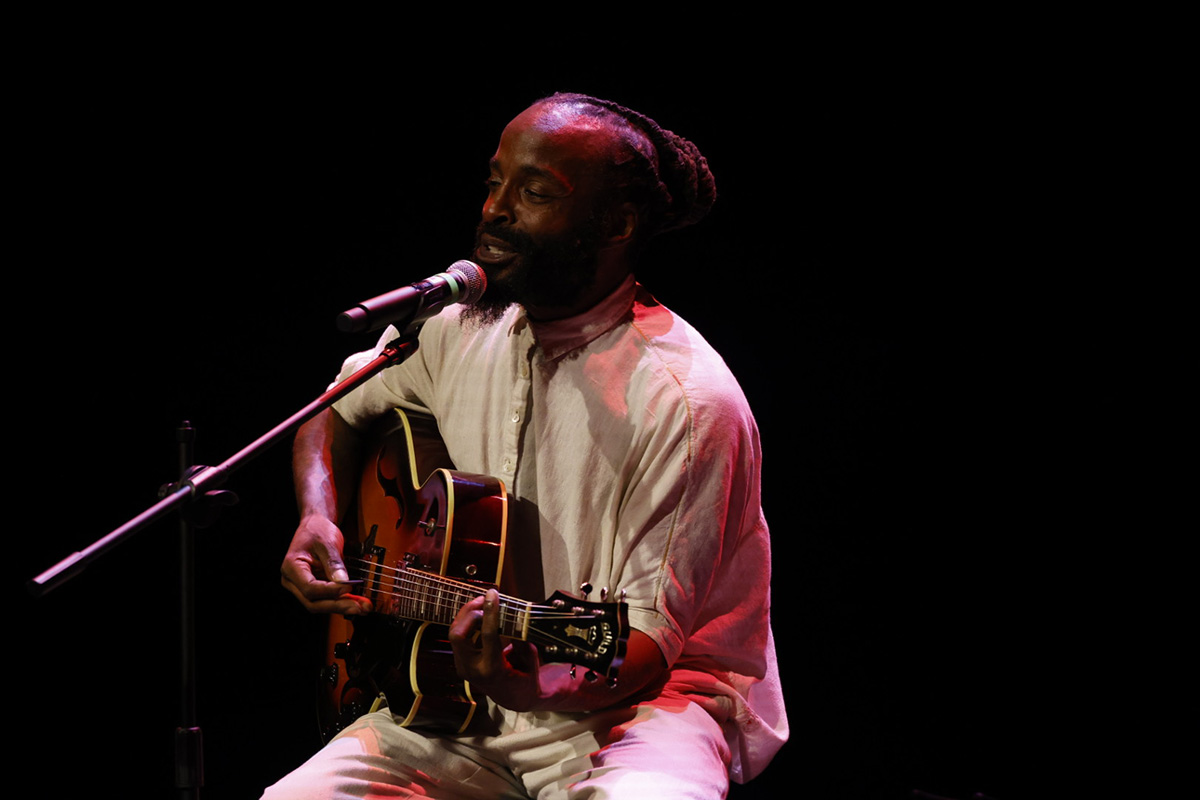
To round out the weekend’s programming, attendees and current students enjoyed several appearances by John Forté ’93, the Grammy-nominated recording artist, songwriter, activist and filmmaker.
At the celebration’s closing dinner in William Boyce Thompson Field House, physician-scientist Dr. Emery Brown ’74, recipient of the 2020 John and Elizabeth Phillips Award, offered some keynote remarks based on his own academic and career journey. “Exeter got me on the road…so I could have a seat at the table. It started that process for me and I'm totally grateful for that,” Brown said. “I think another part of the good fortune I've had has been bringing up ideas, or thinking out of the box. What I've noticed in problem solving is people will try to solve problems [by] extending what is already being done, as opposed to standing back for a minute and saying, what is it that we really need?”
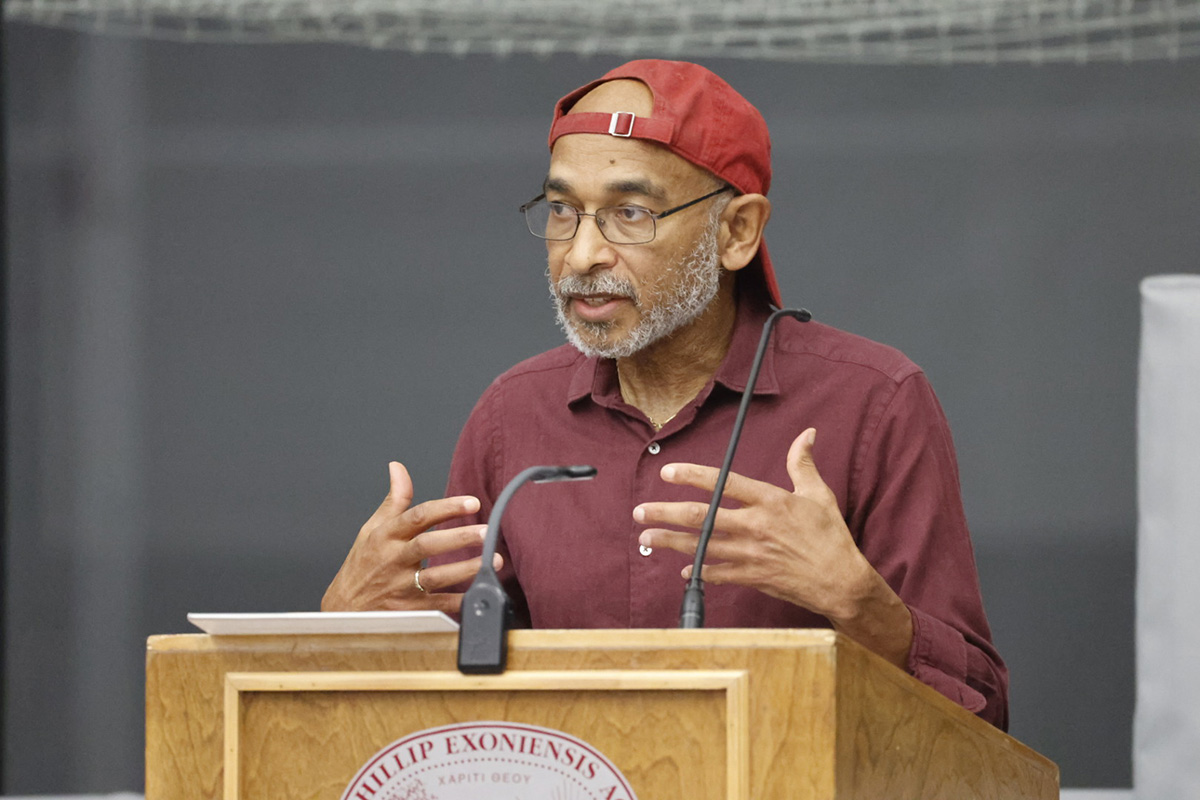
Amid this packed slate of events, visiting alumni enjoyed some free time to attend sporting events, an A.L.E.S. club meeting and a Morning of Remembrance in the Forrestal-Bowld Music Center, officiated by Bryan Contreras ’91; P’24, to honor those who have touched the lives of the A.L.E.S. and the greater Exeter community.
Before departing campus, alumni and students shared a community-building brunch with Stephanie Bramlett, director of equity and inclusion; and Kevin Pajaro-Mariñez, assistant director of equity and inclusion.
Celebrating 55 Years of A.L.E.S
Alumni across generations gather to celebrate the enduring impact of the Afro-Latinx Exonian Society.
